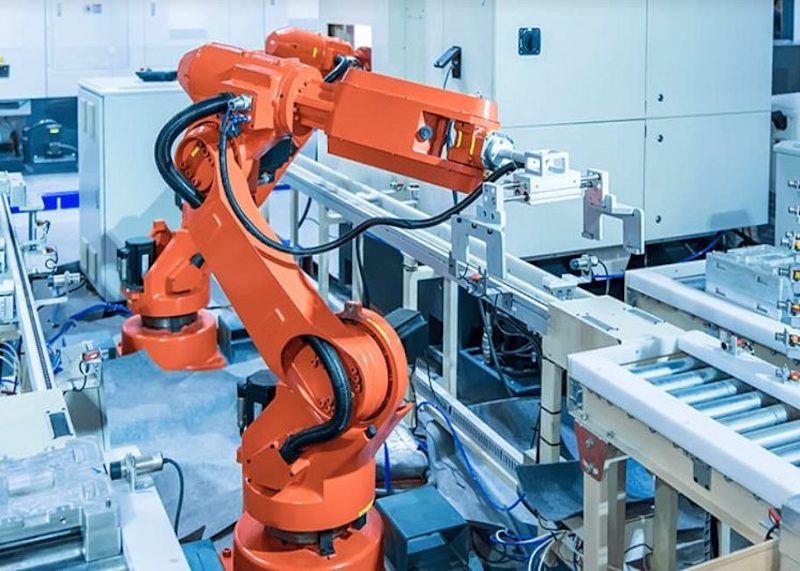The automotive manufacturing industry is one of the largest industries in the US, employing about 9 million people with $1.3 million in annual revenue. The bustling industry like automotive requires the use of robotic technology to reach higher productivity and efficiency.
This technology has impacted automotive plants globally and is one of the most extensive users of robots. Automotive manufacturing plants utilize robots for different purposes like material handling, painting, assembly handling and welding.
Some robots also work outside the car plant and perform tasks, including moving materials, inspecting parts, and spraying paint onto cars.
Indeed, industrial robots are essential in the automotive industry, but it took many decades to make refinements to get there. The robots’ modern idea appeared first in a play in 2021, where robots were mechanical workers and helped humans.
Although the early robots had no external sensors, they could perform basic tasks, including pick and place. Today robots are crucial for automotive production and are more sophisticated than their predecessors.
Advancements in Robotics
Machines have been moving out of research labs into new fields for a long time. They will continue their epic migration to different sectors, including automotive, pharmacies and more.
Many robots contribute to higher-quality products like CNC prototype service in the manufacturing sector, proving effective at basic tasks and jobs.
Some latest robotics innovations include Google’s worker robots, Multitasking bots, Saul robots, Asus Zenbo, and so on.
Evolution of Robotics in Automotive Manufacturing
Types of Robotics in Automotive Manufacturing
The automotive manufacturing industry uses robotics technology in all processes, and it is a high automotive supply chain worldwide. These are the most common and most valuable types of robotic parts manufacturing which industries use related to their sectors.
1. Collaborative Robots
The collaborative robots work with handling and welding robots to make enormous assembly lines function adequately.
2. Robotic Painting
It is difficult to find professional painters, which makes it perfect for robots as the paint job needs to be consistent over a large paint area. Furthermore, it reduces the amount of wasted materials and adds up to a bit of savings.
3. Robotic Welding
Robotic Welding is one of the top applications in automotive manufacturing as cars need many times before it is repaired.
4. Robotic Assembly
Many robotic plants use robots to assemble smaller components, including pumps and high-speed motors. Besides, they increase throughput through windshield installation and wheel mounting.
5. Material Removal
Robots become perfect via high consistency and repeatability for material removal techniques. They perform the tasks like trimming plastic, cutting fabrics and die castings.
6. Part Transfer and Machine Tending
Robots are best at pouring molten metal, transferring metal stamps and completing CNC machining services, preventing danger. In addition, they can also create leading productivity after completing consistency in a short time.
Impact of Robotics on Automotive Manufacturing
The robotics applications in the automotive manufacturing industry are valuable, where they perform high-volume operations. Industrial robots impact positively and negatively on a wide range of manufacturing industries like automotive and others.
Positive Impacts
- Along with other technologies like 3D printing robots, industrial robots can provide better product quality and consistency while improving preventive maintenance practices.
- They enhance the speed of manufacturing processes by operating 24/7, as they don’t require shift changes and breaks. In addition, they maximize throughput and reduce cycle time through swiftness.
- During hostile conditions in manufacturing processes, robots reduce injury risks for workers.
- Robotics technology reduces direct labor costs to use their skills and expertise in other business areas like engineering and programming.
Negative Impacts
- While purchasing a business case, you should consider all the costs of robots as they require a high initial investment. You must evaluate the modification of robots to alter operations in the future.
- Industrial robots require sophisticated operations and maintenance, but the number of people with these skills is growing. It causes expertise to be scarce to take on the task.
- Robots have ongoing costs like maintenance while reducing some manufacturing labor costs. So, consider keeping your robot and any related IoT devices from cyber threats.
- Apart from that, robots cause the loss of jobs in the manufacturing sector and other industries.
Highly Automated
Overall, the automotive manufacturing industry has been the quickest and most extensive adopter of robotics technology for many years and continues today. They make a highly automated supply chain while performing all tasks in every part of the automotive manufacturing sector.
The robotic industry provides plenty of applications to choose from for manufacturing processes. With the advancement in technology, more opportunities are opening for different sizes of operations.
Simultaneously, robotics help manufacturers address critical challenges like tight labor pools and global market competitiveness.

